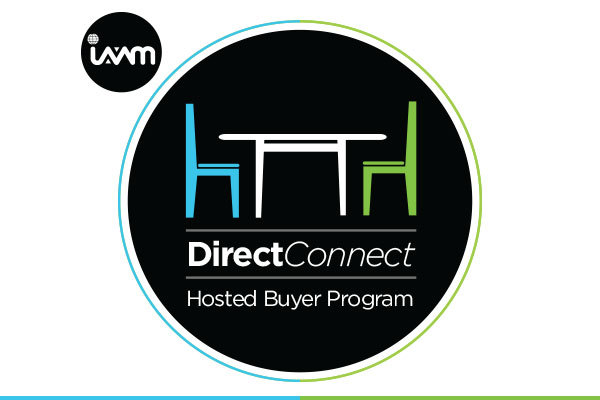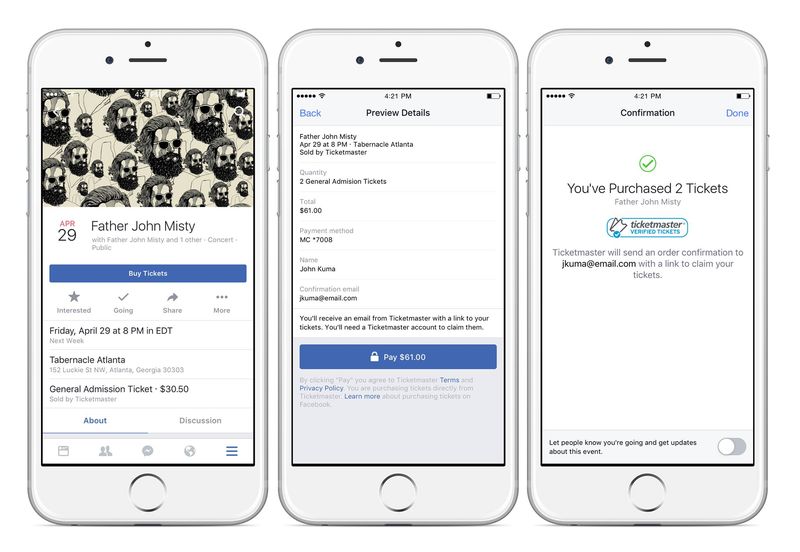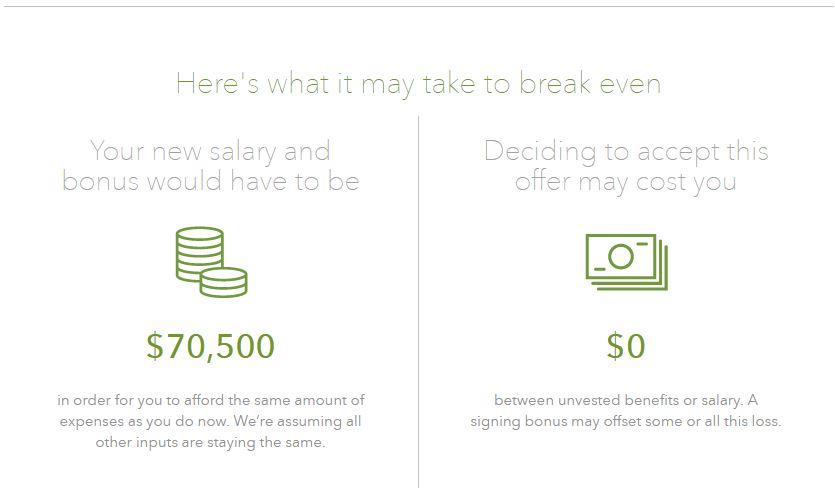The $1 Billion Team

“Great format with fast-paced interaction.”
“Great information and loved being exposed to new products.”
“Great opportunity for one-on-one meetings.”
“Enjoyed learning about new capabilities of products.”
“Great to meet face to face in a smaller setting.”
These are just a few of the many praises from past surveyed DirectConnect participants. Perhaps you, too, will be singing its praises this year.
DirectConnect brings qualified buyers to VenueConnect for FREE, and we already have more than $1 billion (yes, billion!) in confirmed buying power in the 2016 program.
For Professionals, if you or your team have an upcoming project or new product needs, apply here and experience the benefits of our new, customized meeting program.
For Allieds, when you participate as a host, you build a customized schedule of 10 one-on-one appointments with pre-qualified buyers and decision makers that match your business.
Pricing per table:
* Exhibiting Allied Members: $3,000
* Non-Exhibiting Allied Members: $7,500
To reserve your spot, please fill out the DirectConnect Contract.
Appointments opened April 11. Don’t miss your chanced to get in front of these venue managers!
Here is a list of venues that have committed to participating in the 2016 program taking place at VenueConnect in Minneapolis, Minnesota, July 23-26.
Allen Event Center
American University
Ames Center
Baltimore Convention Center
Chandler Center for the Arts
Charleston Civic Center
Fox Cities Performing Arts Center
Georgetown University Department of Athletics
Hawaii Convention Center
Hellenic College
ICAO
Jacksonville Jaguars
Kellogg Arena & Festival Market Square
Kennesaw State University School of Music
Landers Center
Lauderhill Perf Arts Center
Lied Center for the Performing Arts
Mayo Civic Center
Mesa Arts Center
Millersville University
Orlando City Soccer Club
San Diego Zoo Global
Show Me Center
TAIWAN EXTERNAL TRADE DEVELOPMENT COUNCIL
Topeka Performing Arts Center
Tuscaloosa Amphitheater
UC San Diego
UCSD Sports Facilities
VenuWorks – Ames
VenuWorks – Iowa State Center
Visalia Convention Center
Walton Arts Center/Walmart AMP
Yakima Convention Center
Ticketmaster and Eventbrite to Sell Tickets via Facebook

Score another win for Facebook. By the end of the month, Ticketmaster will start selling tickets directly on the ubiquitous social media site, as reported by Buzzfeed News.
“By putting the ability to buy tickets directly within Facebook we hope that we’re going to provide a more seamless purchase experience and sell more tickets,” Dan Armstrong, VP and general manager of distributed commerce at Ticketmaster, told BuzzFeed News.
Facebook will receive an affiliate fee from Ticketmaster when a ticket is purchased on the site. However, tickets still have to be “claimed” on Ticketmaster’s website or app.
“Millions of people on Facebook connect with their favorite bands, artists, and causes to find out about events happening in their community,” a Facebook spokesperson told Fortune. “We’ve heard feedback from venues and artists that Facebook is an important platform for them to update and connect with fans. We’re excited to help partners like Ticketmaster sell more tickets via Facebook and to make ticket purchasing easier and faster for people.”
Concerning Eventbrite, no affiliate fees will be collected by Facebook when Eventbrite tickets are purchased.
“We are committed to innovation that helps event organizers sell more tickets,” Eventbrite VP of Product Laurent Sellier told Buzzfeed News. “Enabling a seamless purchase experience for consumers in places like Facebook where they are spending significant time is an important step in this mission.”
(Image: The Verge)
Useful Tool: The Job Offer Evaluator

As IAVM member Zach Sloman recently wrote in his blog post, “Making the Move,” if someone wants to climb the ranks one must move locations. Sometimes, though, deciding between jobs can be stressful. That’s where Fidelity’s Job Offer Evaluator comes into play.
The tool helps people evaluate two jobs not just based on salary but also on benefits, relocation expenses, and cost of living. The evaluator is only three easy steps, but may help you feel at ease making a hard decision.
Please check out the Job Offer Evaluator and let us know in the comments if you find the tool useful.
Please Welcome Our Newest Members

Please welcome our newest members who joined IAVM in March 2016—a total of 83 new members. Thank you for being a part of the association!
Also, let us get to know you better by participating in the I Am Venue Management series. Please visit http://www.iavm.org/i-am-venue-management-share-your-story to share your story and photo.
Thomas Aicher, University of Cincinnati
Jim Alderden, ClearStream Recycling
Timothy Allen, Western Kentucky University
Leeanne Ashcroft, Venue Management Association
Ray Bess, Savannah Civic Center
Yonnie Blanchette, Carver Community Cultural Center
Joshua Brown, Qualcomm Stadium
Ryan Cahoy, Rise Vision
Philip Campbell, LeConte Center at Pigeon Forge
Tyreon Clark, Western Kentucky University
Dawn Collins, Loyola University Chicago
Kacey Conley, Texas A&M University
Melissa Corban, Music City Center
Shane Cummings, Florida Atlantic University
Lisa Marie Czop, Nationals Park/ Washington Nationals
Michelle Doherty, Duke Energy Convention Center
Adam Epstein, Innovation Arts & Entertainment
Jermaine Ervin, Western Kentucky University
Allison Focke, Duke Energy Convention Center
Dennis Galloway, Washington State Convention Center
Lindsay Greer, Wichita Falls Multi-Purpose Event Center
Jody Grossman, Denver Performing Arts Complex
James Harvey, Austin Convention Center Department
Alex Hearn, Savannah Civic Center
Jacquelynn Heath, Wright State University Nutter Center
Tracy Hedrick, The Jerome Schottenstein Center
Robert Heimbach, GALA Systems, Inc.
Emily Hinkle, Duke Energy Convention Center
Tracy Hodges, Savannah Civic Center
Detarian Holmes, Western Kentucky University
Tameka Hutchinson, Savannah Civic Center
Anna Jensen, University of Iowa
Juviza Jimenez, Prudential Center
Ronnie Johnson, Western Kentucky University
Lee Kaloidis, Mayo Center for Performing Arts
Veronika Kelemen, SEDA Seating LTD.
Lakia Boddie Kelly, Savannah Civic Center
Deborah Kicklighter, Savannah Civic Center
Sun Kim, Washington State Convention Center
Cassandra Kolder, Western Kentucky University
Rick Kriscka, R.I.C. Corporation
Gretchen Landrum, Northern Kentucky Convention Center
Michaela Liebl, Northern State University
Adriana Lucas, Studio City Event Center
Ashley McCord, Superior Recreational Products
Elizabeth Milcarek, Western Kentucky University
Mike Moore, Ticketfly
Nihkolle Morton, Hard Rock Hotel and Casino Las Vegas
Michael Orman, Greenhill School
Ryan Parrent, Southern Aluminum
Dilisha Patel, Washington State Convention Center
Christian Perez, GoVision
Pam Plageman, Duke Energy Convention Center
Debbie Ponath, San Jamar
Nicole Reeves, Western Kentucky University
Jonnah Renfroe, Mabee Center
Henry Reyes, Austin Convention Center Department
Bernard Roberson, Savannah Civic Center
Wendy Rohaly, The Jerome Schottenstein Center
Maurice Ruffin, Nationals Park/ Washington Nationals
Stacy Rutherford, Harford Community College
Tom Saunders, Social Tables
Timothy Savona, Ford Idaho Center
Chris Schappert, Music City Center
Cait Schumann, The Jerome Schottenstein Center
Christopher Shaw, GALA Systems, Inc.
Joseph Shearouse, Savannah Civic Center
Mark Shoemaker, CyberLock, Inc
Steven Smith, Vivint Smart Home Arena
Mark Sonder, George Washington University
Connie Stephens, Savannah Civic Center
Darcy Strang, Oilers Entertainment Group
Joshua Sumner, Western Kentucky University
Barbara Veiock, Savannah Civic Center
Jeff vom Saal, Spokane Symphony & Morton Woldson Theater at the Fox
Eugene Wade, Denver Performing Arts Complex
Kevin Wagner, Resch Center
David Waymon, Western Kentucky University
Andrew Wedding, Western Kentucky University
Carlos Wolfolk, Savannah Civic Center
Leigh Wooldridge, McAllen Auditorium and Convention Center
Sam Yarin, Oracle Hospitality
Rachael Zambias, Yerba Buena Center for the Arts
Gensler Hired to Design Bucks Entertainment Block

Gensler and Milwaukee, Wisconsin-based Rinka Chung are the team that will design the entertainment block adjacent to the Milwaukee Bucks’ new arena.
“We couldn’t be more pleased to welcome these two cutting-edge firms to our team as we continue to transform this portion of downtown Milwaukee and create a community gathering space that will attract year-round activity to the city,” Bucks President Peter Feigin said in a statement. “We envision this space being a showcase for the best entertainment outlets that Milwaukee and Wisconsin have to offer and one that empowers local businesses to partner with us in revitalizing this portion of the city. We look forward to working with Gensler, Rinka Chung, and local officials to bring our ownership’s vision for this space to life.”
The entertainment block, spanning Fourth Street from W. Highland Ave. to W. Juneau Ave., will feature dining, entertainment, and retail businesses.
“This is a great project to revitalize downtown Milwaukee, anchoring the Bucks to the city and transforming the way residents interact with the area,” said Lamar Johnson, regional managing principal with Gensler, in a statement. “We’re thrilled this project affords us the opportunity to work with ICON Venue Group again, and we look forward to the excitement and changes to come from this landmark development.”
The arena is expected to break ground in summer 2016.
“The Rinka Chung and Gensler team is proud to be selected for the Milwaukee Bucks Live Block project,” said Matt Rinka, principal architect for Rinka Chung, in a statement. “Our partnership harnesses international expertise with a regionally-rooted, award-winning design firm. We wish to thank the leadership of the Bucks, ICON and the City for placing their trust in our experienced and talented team. In terms of defining the human experience of the arena district and the downtown urban environment as a whole, this is a monumentally key project for our region. Our team understands this, and we are well prepared to deliver an inspiring destination that our entire community can take pride in.”
(Image: Milwaukee Bucks/NBA)
Do you want to receive a Front Row News weekly digest?
Categories
- Allied (856)
- Architecture (147)
- Arenas (744)
- Career (890)
- Convention Centers (889)
- Education (608)
- Events (1,528)
- Food & Beverage (193)
- Foundation (113)
- Guest Experience (1,482)
- Industry News (2,253)
- Leadership (1,872)
- Marketing (150)
- Membership (1,985)
- Music (212)
- Performing Arts Centers (453)
- Professional Development (398)
- Research (127)
- Safety & Security (425)
- Sports (763)
- Stadiums (607)
- Student (159)
- Technology (515)
- Ticketing (92)
- Touring (82)
- Trends (357)
- Uncategorized (771)
- Universities (216)
- Video (25)
- Young Professional (198)
Twitter Feed
- Twitter feed loading
Recent Posts
- GEODIS Park Selects Allied Universal As Its Preferred Event Services Provider
- Venuworks Appoints Marc Solis as Executive Director of the Fresno Convention and Entertainment Center
- Los Angeles Convention Center Diverts 8,000 Pounds of Wood Waste to Local Foundation Supporting Fire Victims
- Fort Worth Unveils Plans for Phase 2 of Convention Center Transformation
- San Diego Convention Center CEO Announces Retirement After a Decade of Leadership
Categories
- Allied
- Architecture
- Arenas
- Career
- Convention Centers
- Education
- Events
- Food & Beverage
- Foundation
- Guest Experience
- Industry News
- Leadership
- Marketing
- Membership
- Music
- Performing Arts Centers
- Professional Development
- Research
- Safety & Security
- Sports
- Stadiums
- Student
- Technology
- Ticketing
- Touring
- Trends
- Uncategorized
- Universities
- Video
- Young Professional
Archives
- February 2026
- January 2026
- December 2025
- November 2025
- October 2025
- September 2025
- August 2025
- July 2025
- June 2025
- May 2025
- April 2025
- March 2025
- February 2025
- January 2025
- December 2024
- November 2024
- October 2024
- September 2024
- August 2024
- July 2024
- June 2024
- May 2024
- April 2024
- March 2024
- February 2024
- January 2024
- December 2023
- November 2023
- October 2023
- September 2023
- August 2023
- July 2023
- June 2023
- May 2023
- April 2023
- March 2023
- February 2023
- January 2023
- December 2022
- November 2022
- October 2022
- September 2022
- August 2022
- July 2022
- June 2022
- May 2022
- April 2022
- March 2022
- February 2022
- January 2022
- December 2021
- November 2021
- October 2021
- September 2021
- August 2021
- July 2021
- June 2021
- May 2021
- April 2021
- March 2021
- February 2021
- January 2021
- December 2020
- November 2020
- October 2020
- September 2020
- August 2020
- July 2020
- June 2020
- May 2020
- April 2020
- March 2020
- February 2020
- January 2020
- December 2019
- November 2019
- October 2019
- September 2019
- August 2019
- July 2019
- June 2019
- May 2019
- April 2019
- March 2019
- February 2019
- January 2019
- December 2018
- November 2018
- October 2018
- September 2018
- August 2018
- July 2018
- June 2018
- May 2018
- April 2018
- March 2018
- February 2018
- January 2018
- December 2017
- November 2017
- October 2017
- September 2017
- August 2017
- July 2017
- June 2017
- May 2017
- April 2017
- March 2017
- February 2017
- January 2017
- December 2016
- November 2016
- October 2016
- September 2016
- August 2016
- July 2016
- June 2016
- May 2016
- April 2016
- March 2016
- February 2016
- January 2016
- December 2015
- November 2015
- October 2015
- September 2015
- August 2015
- July 2015
- June 2015
- May 2015
- April 2015
- March 2015
- February 2015
- January 2015
- December 2014
- November 2014
- October 2014
- September 2014
- August 2014
- July 2014
- June 2014
- May 2014
- April 2014
- March 2014
- February 2014
- January 2014
- December 2013
- November 2013
- October 2013
- September 2013
- August 2013
- July 2013
- June 2013
- May 2013
- April 2013
- March 2013
- February 2013
- January 2013
- May 2012
- March 2012
- December 2011
- November 2011
- October 2011
Recent Comments
- Frank Bradshaw, Ph.D., CVE on John Meyer, CVE, a Tireless Advocate of Certification for Venue Professionals, Has Died
- Neil Sulkes on Hilary Hartung, Friend to Many in Venue Marketing, Has Left Us
- Jason Parker, CVE on The Devastation of Hurricane Helene and How We Can Support One Another
- Larry Perkins on Touhey Testifies Against Speculative Ticketing Before Congressional Subcommittee
- Peter Secord on Major Players for Planned Elkhart Amphitheater Were in the Mix at VenueConnect
